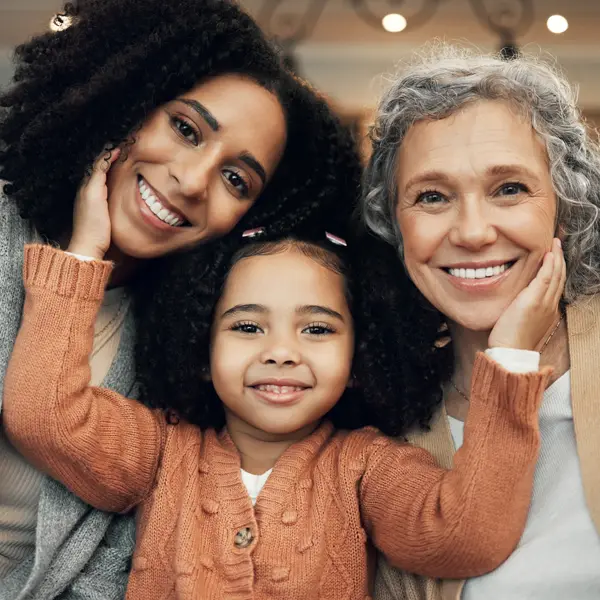
Make 2x the Impact Now
Make 2x the Impact Now
Our March Mission Match is underway, but not for long. Your gift by March 10 can go twice as far to advance research and help provide care and support for those living with Alzheimer’s and their caregivers.
Give NowIncreasing Concern and Awareness
In order to effectively deliver on our mission, the Alzheimer's Association works to increase public concern about Alzheimer's and all other dementia and increase the visibility of our organization as a resource. Levels of concern and awareness among historically underserved and underrepresented populations are not proportionate to the disease's impact on these communities. The Association continues to cultivate strategic relationships with trusted national and local organizations, public figures and media outlets, and generates inclusive awareness campaigns available in multiple languages to address and continuously improve its reach in underserved communities.
Ad Council/Some Things Come with Age
In 2023, the Ad Council, in collaboration with the Association and creative agency Lopez Negrete Communications, launched Some Things Come with Age to increase early detection of Alzheimer's and other dementias within the Hispanic community by raising awareness of the early signs and symptoms. The campaign celebrated the positive aspects of aging while educating about changes that could be signs of Alzheimer's. Public service announcements ran in Spanish and English on television, radio, out-of-home and digital sites across the country, including donated media support. The campaign's website — 10signs.org in English and 10señales.org in Spanish — offers tools and resources to help families recognize early warning signs of Alzheimer's, tips for facilitating conversations about cognition, benefits of early detection and diagnosis, a discussion guide for use with doctors and health providers, and other disease-related information.
Ad Council/How Sweet The Sound
The Association believes in meeting people where they are with on-the-ground engagement. The Ad Council and the Association partnered with How Sweet The Sound, a national soulful music competition, in September 2024 in Dallas. Grounded in the history and sound of gospel music, How Sweet The Sound is committed to educating the Black community on various causes and health-related topics. The Association integrated early detection messaging into How Sweet The Sound's multichannel programming, including remarks from Dr. Carl V. Hill, the Association's chief diversity, equity and inclusion officer. In addition to the 2,200 people in attendance, the Association extended reach post-event through email campaigns and social media with celebrity gospel talent, faith leaders and community members.
Music Moments
In March 2025, the Association added its second Spanish-language artist to Music Moments, a digital storytelling series that explores the emotional connection between music and the moments in life that we never want to lose to Alzheimer's and dementia. Three-time Latin GRAMMY-winning artist David Bisbal joined the Association to raise awareness of the significant impact Alzheimer's has on the Hispanic and Latino communities. Bisbal recorded an inspiring version of his song "Mi Princesa," dedicated to his father and aunt and anyone impacted by dementia. Bisbal follows Luis Fonsi, who was the first bilingual Latino artist to join Music Moments. Through Bisbal's 26 million followers, we expanded our reach in the Hispanic and Latino communities and secured earned media coverage in more than 20 outlets, including Telemundo, BELatina, "Entertainment Tonight," People, Page Six, and the Los Angeles Times.
Celebrity Champions
Other Celebrity Champions using their voices to elevate the cause among diverse audiences included comedians Atsuko Okatsuka and Chris Garcia and actors Don Cheadle, George Lopez, Danny Trejo, Luis Guzmán, Henri Esteve, Jon Huertas, Shohreh Aghdashloo and Brandee Evans. Chef Carla Hall, pop culture icons Scarlet Envy and The Old Gays, and TV personalities Rachel Lindsay and Crystal Kung Minkoff also joined as Celebrity Champions.
Partnership Spotlight
The National Hispanic Council on Aging
The National Hispanic Council on Aging (NHCOA) is involved throughout the Association. NHCOA sent letters of support for Association grant applications, regularly participated as panelists in webinars and educational programs, and provided feedback for the Healthy Brain Initiative Road Map. Additionally, they extended invitations for speaking opportunities to Association staff at their legislative breakfasts and other social events to help drive awareness of the organization and our partnership.
"For over five years, our partnership with the Alzheimer's Association has demonstrated our shared commitment to ensuring that every American, especially Hispanic/Latinos, has the tools, resources, education and support needed to navigate the challenges of Alzheimer’s and dementia," says Christine Perez, NHCOA director of programs. "Together, we are breaking down barriers, advancing public health and fostering a future where we all have access to a cure and no one faces this journey alone."
In 2024, NHCOA disseminated Spanish-language Association materials in Puerto Rico, where they conducted a health fair in Vieques Island.
"Most of the attendees were seniors who had a loved one that died from Alzheimer's and others were caring for a loved one with Alzheimer's," said Perez. "The materials provided by the Alzheimer's Association were greatly helpful for them. Also, we provided the information to the nursing students that were part of the health fair. We found that there's a great need for more information about Alzheimer's and support."
